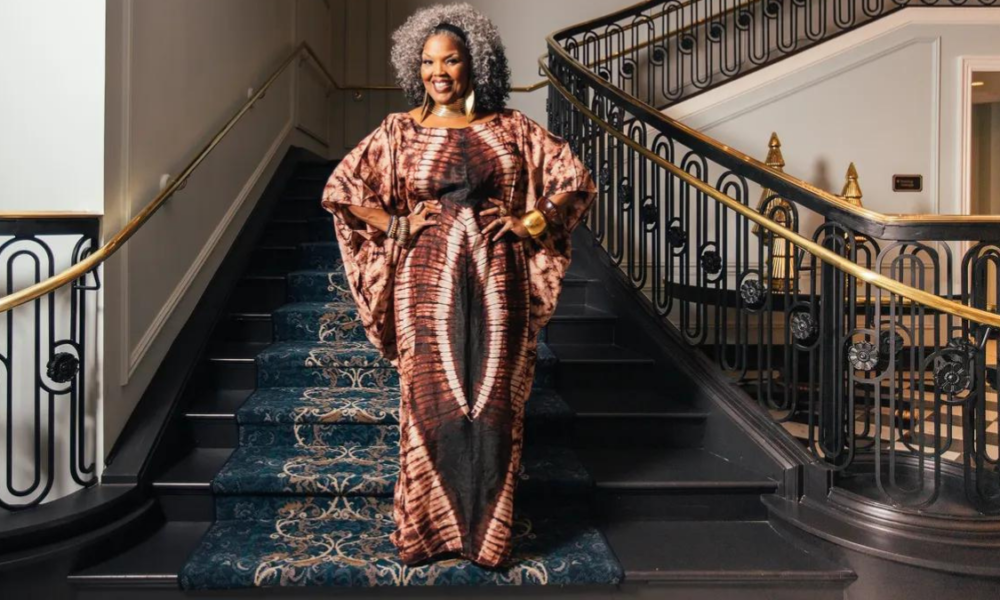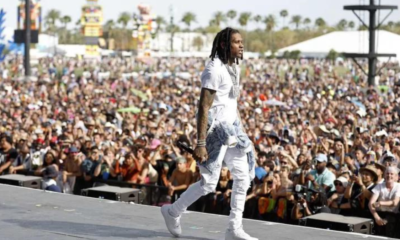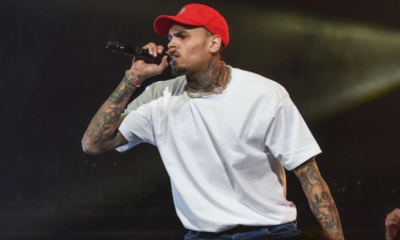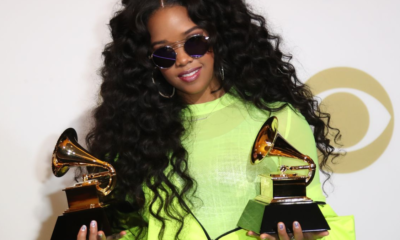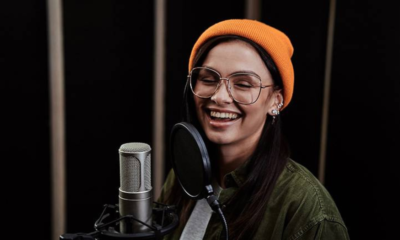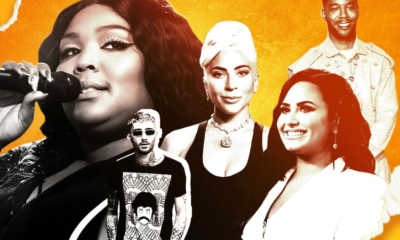Business
Interview with Opera Stage Soprano Angela Brown
Angela Brown personifies the ideal soprano: sheer vocal power; luxurious finesse; and shimmering, high pianissimos. With a charming personality larger than life, she unites opera, pops, and gospel in one sensational voice and has graced the leading opera and symphonic stages across six continents. A featured artist on the two-time Grammy Award® winning recording “Ask Your Mama,” Angela’s international reputation continues to grow.
Published
2 years agoon
By
Contributor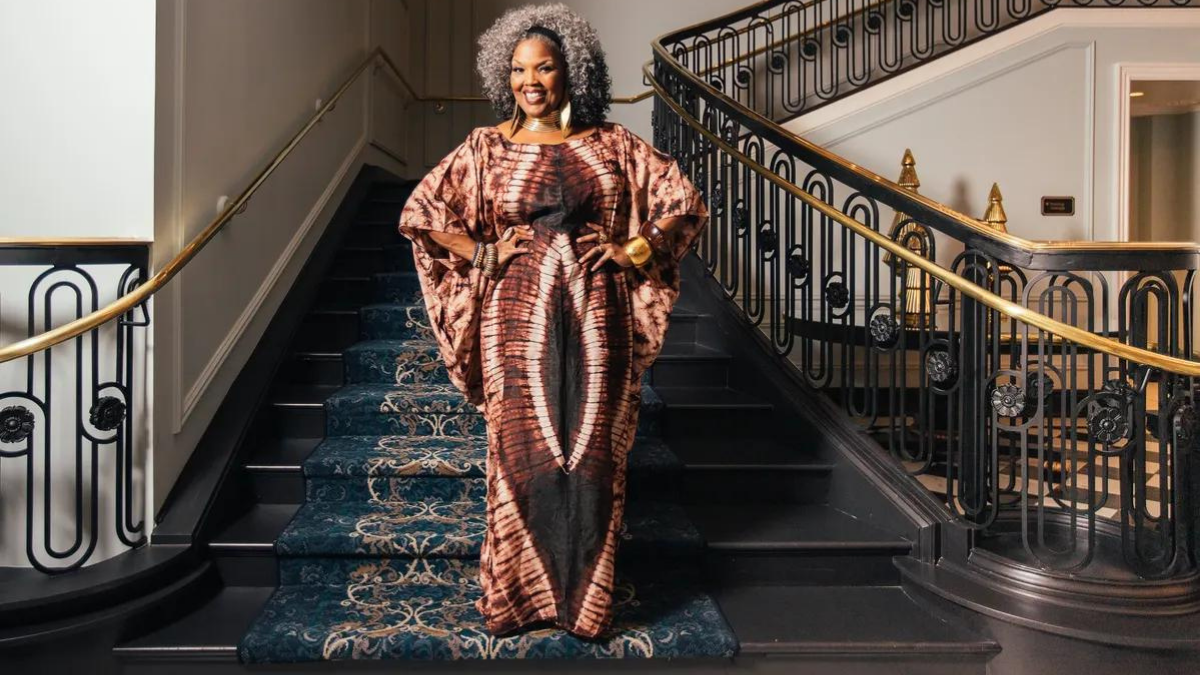
TVM: Today I have the distinct privilege of speaking with a Sister lighting up the opera stage Soprano Angela Brown. How are you today?
AB: I am fine thank you for having me
TVM: Thank you so much for speaking with us we really appreciate it. Before we get into your voice, and your opera, from a sister’s point of you how exactly did a “SISTA’S” gravitate towards opera?
AB: You know I always say that opera chose me, I did not choose it. I’ve always sung I started out singing in my gran father’s Baptist church, and as I got older, I started doing a lot of musical theatre and other genres of music but, classical music was the last thing I picked up. When I went to Oakwood University in Huntsville Alabama my teacher there said you know you can do this for a living. And so as I began to learn the technique I took to it like a duck to water! It was nothing! It was very easy for me. The challenges have been as I’ve gotten older and I get more and more use to my technique, not staying in something that I was use to but growing with it. That’s a challenge for every singer, is to grow with their instrument, and not just rely on what was easy in the beginning but to always keep cultivating and making it better. So I always say opera choose me I didn’t choose it because I sang so many other genres it was the last thing, and people wanted to pay me.( she laughs..)
TVM: My parents are CNN junkies, so I often get stuck in there web, I do recall seeing a segment with Tony Harris.
AB: Yes
TVM: “What matters”, and you were on there, can you just elaborate a little bit for our readers.
I did a segment with Tony Harris about opera from a sister’s point of view. It’s a show that demystifies opera for audiences that normally would not go. When I first started doing the show, my first idea was I wanted to bring it more to my people, people of color because when I was out on the opera stages of the world there were mainly monochromatic. It was a bunch of white folks looking at me. And I was like… Where are the people of color? When I was younger, I know that I had the opportunity to go to a lot of symphony concerts, ballets, and things like that. Now a day’s they’ve cut so much music out of the schools kids don’t even know who Lya/Tya Price is, and she ain’t that far in the back. So I wanted to start the show to let my people know (she laughs) that we too can do this. But as I began to do the show honey…)I found out that white people don’t like opera either, so it’s become about embracing opera. It’s an art form that you will find yourself in there are African operas I don’t care how many people you paint up. Ieda it’s an African opera! Egypt and Ethiopia are in Africa I claim it honey…) You have African American operad “Porky and Bess” You have Asian operas Madam butterfly and Turindo. You have Italian operas Natasko, and that list goes on. Hispanish operas like Carmen. You will find yourself an opera it’s just a matter of trying it. Don’t say you don’t like a mushroom until you’ve had a mushroom. At least go and enjoy the art form. So that’s why I started opera from a sister’s point of view and that’s what Tony and I were talking about on CNN.
TVM: I enjoy the fact that you seem to take a lot of care in infusing the youth and to educating everyone about opera Kudos to you for that. When I hear you sing for me it’s like what I would imagine heaven to be like. If you could describe your voice, how would you describe it?
AB: Oh Wow! It’s funny that you would ask me this questions cause I was listening to myself sing on some recordings. My very first recording on to this last recording I just did. I just listened and I hear the development and I would say that my voice if I can encompass everything that I’ve heard over the years, I would say I have an even smooth middle with high spinning sparkly tops. And a very rich low gewy chewy delicious bottom register. It’s like a piece of Godiva chocolate that melts in the pit of your mouth. That’s my voice.
TVM: Who were some of your vocal inspirations growing up?
AB: I did not come to classical music till I was 21 which was 2 days ago. (She laughs)
I would say growing up, some of my big influences were, Gladys Night, Natalie Cole. When she first came out with that 1975 album “In separable” child…. She was my girl! Then we go to broad way and it was Jennifer Holiday. (she’s singing Your gonna love me )On the male side it’s Stevie Wonder, James Ingram, Jeffery Osborne then, can’t leave out Mr. Luther Vandross. Group wise there was Earth Wind and Fire, The Commodores. For gospel it’s Milton Brunson the Hawkins family, the Winans, the Clark sisters. I believe in building a voice you have different influences, and I believe also, that is one of the reasons why I am sought after because I can fit so many bills just because I never let go of all my influences it’s all a part of making up me and my voice because when it comes to classical music I tend to go towards the voices that are not necessarily so sterile sounding, they are more beauty, and they are more Bellecanto they are singing the meaning of the words like Maria Culluses, and Latin prices who is my biggest influence. Jessie Norman, Kathleen Battle. The Giozati who was teacher. To have all of those influences in the same sloop, The same stew that I came out of which was a heavy R&B gospel thing, and then to put that it’s just going to make me a more well-rounded singer.
TVM: Do you have a vocal routine? If yes can you tell your readers about it?
AB: When I am preparing I might do some humming, vocalise, and some listening but if I don’t have anything of the essence to prepare for, I’ll do light stuff, and I’ll teach. But when I am ready to prepare for something, like I’m getting ready to go to Calgary to do Tulsca, I’m going to go over the music with my coach or an accompanist just to make sure I have everything, and that the Italian is clean. So that’s my routine it is very light until I get closer to the actual job, and then I will train more. When I learn a new role that’s a different process, you go through the first three months just adapting to the role in your voice, and listening and getting it into your body with your ear orally. I always listen orally first even if I lean the mistakes I can always go back and then when I get with my coach they break down the rhythms, and the language, and I would rehearse it till I memorize it.
TVM: Speaking of the different languages, because you perform in various languages I am curious to know if you speak any of them?
AB: Well you know I get around with a first person Italian (she laughs) I married a French man and he speaks fluently, French, English and Italian. So I’m not fluent In French, no- where near it but I can get around.
TVM: People have these miss conceptions of how physical it is for an opera singer, and I was just wondering if you find a connection between vocal workouts and physical work-outs?
AB: Yes! You know when you don’t have breath, you don’t have voice. And if you are not doing something to raise your heart rate, and sing along…) I don’t choose to run or jog, I choose to walk or ride a bike. There are a whole lot of things to do then hurting my knees… child( she says jokingly) you have to keep your physical-self up. I always know when I have not done enough because I know I don’t feel my breath as well you don’t feel your support as well. Doing sit ups and crunches just to keep connected to that core. Helps!!
TVM: Does what you eat affect your voice for the positive or the negative?
I stay clear of anything creamy/dairy. I get ready 3 hours before the curtain so I’m going to eat some chicken soup or a salad maybe a sandwich. I stay away from anything that will cause your saliva to thicken I stay away from. And that could be orange juice, raisins, bananas, (she says I hate bananas… and laughs). Smoothies there fine and some bread, there fine too. I’m going to give it to you straight grapes fruits, apples, apples are wonderful, warm temperature apple juice is great because it is as closes to saliva, because water can actually dry you out a little bit. Yeah! Hydrate! Hydrate! Hydrate! Drink a lot of water but during the show, because apples juice will also produce saliva, it helps you more.
It makes you salivate.
TVM: What time of day do you feel vocally at your best?
AB: I feel vocally at my best around 4:00 or 5:00 on through to midnight, then I’m ready to shut it down, but you know I do what I have to do but I am at my vocal prime around 4:00 in the afternoon those are the diva hours (she laugh).
n this question, because I believe a lot of singers have passion and pride about themselves, they have standards, they have morals. There are a lot of singers out there that live for the craft, but don’t live for the craft that they are willing to sacrifice their souls for it ain’t that deep. To say that I am different, I don’t know I have to let whoever is doing the listening answer that question, because for me personally I am a working singer so I never see myself as a big “I” or a little “u” or anything. I am God’s child, I am a working singer, and I’m blessed. Ain’t nothing lucky about Angela Brown this is all blessings, God’s got me all the way.
TVM: Which do you prefer recording in the studio or performing live?
AB: You know it depends, because I’ve done a live recordings and I’ve done a studio recording and I have to say that I like the studio a little better because I can make all the stuff that didn’t go well in performance right. I love being on stage, I love doing what I do. But I like recording! Give me some shine, some shade, some reverb, turn it up (she laughs).
I have a new CD coming out it’s a compilation CD Richard Daniel pour did a song cycle for me and Dr. Mia Angelo wrote the Lebreto, and its called a women life it will be released on (Knoxso records)Richard Danielpor’s it’s with the national symphony there are 3 pieces Darkness in the ancient valley, A womens life, and Lacre men…… It will be realised on September 26 2014.
TVM: What advice can you give to up and coming artist?
Never let anyone determine what success will look like for you, because every bodies success will be different. Everybody is going to have a different way to achieve it. And it’s interesting that you said that it is hard to break through in to the music industry. If you think of breaking something you already put a barrier in front of yourself. So take the limits off because God is limitless! It is hard for us to think in infinite terms when we have finite minds. So don’t let anybody determine what success will look like to you. And If you are singing you are in the industry it’s just a matter of getting in front of the right people. SO if you are singing and doing it well, somebody is going to hear you. When an opportunity presents its self, open your mouth there is nothing to big or to small and it cannot always be about the dollar neither can it be about never getting the dollar. However sometimes it’s about the exposure or for your own personal enrichment.
What I tell all the young people that I do master classes with is If this is your passion if you wake up, you eat and sleep this, and you know that you can do this, stick with it. There is no harm in being a star where you are. When I won the met competition in 97 I use to go around and tell these young people if you want to go to the met all you have to do is believe it, and you can do it.my mom one day said Angela stop telling that lie ( she laughs) I said why Momma!? She said; It’s not meant for everybody to sing at the Metropolitan Opera. It’s not necessarily their testimony or their destiny in life. So what I say now is why can’t you be a star were you are not everybody can’t sing at the Met. If it’s not going to be on a national stage, maybe it will be regional. Maybe it may be just right in your state, in your church, or your denomination. In a nut shell, you have to want this that means not putting things in your way that’s going to hold you down, or hold you back.
TVM: What is you ultimate goal when you perform, what do you want your fans to take away from your performance?
When I signed my contract my ultimate goal is to get my check, and pay my bills But in getting my check and paying my bills, I must be worthy of my check. So I want to give a good performance I want to give a performance where they feel full. They be like dammm… that girl can do anything! Because I always want to keep those doors of other opportunity I’m a business women too. I want to give my fans flavors there is so much in me and so many roots from different genres of music. If I don’t share some of everything I am I feel like it’s a disservice so I’m giving you some spirituals I’m giving you a little taste of gospel with a little bit of R&B you know and of course the heavy classical stuff but! I’m going break it down with a little humour I’m going to talk to you.
Business
Why Are So Many Rap Concerts Getting Canceled?
From a handful of Lil Baby concert stops to large events like the Made in America festival, rap concerts have been getting canceled quite frequently in recent years.
Published
9 months agoon
August 17, 2023By
Contributor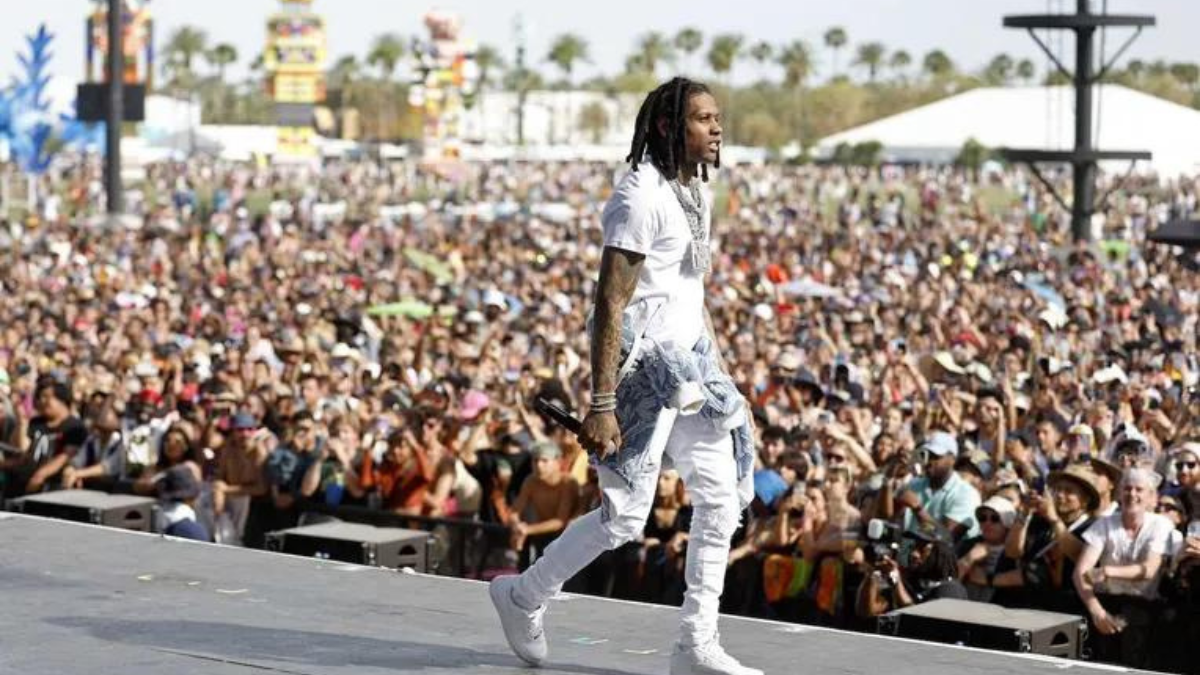



Dan Runcie


Lizzo at a concert in Minnesota (via Manitou Messenger)
Nicki Minaj’s NICKIHNDRXX Tour — canceled in North America. Chance the Rapper’s Big Day Tour — canceled everywhere. T-Pain’s 1UP DLC Tour — canceled. Cardi B’s Invasion of Privacy Tour— chose not to do one.
Touring’s traditional model needs work. Cancellations have happened for years, but this recent wave is different. Many hip-hop artists overestimate demand for ticket sales. We live in an era with endless data, but touring decisions still seem like the industry blindly throws darts. Meanwhile, artists who can sell out those same venues have proudly taken new approaches. These trends are connected.
The popularity of music festivals and concert residencies have added new variables to the live performance mix. Mainstream artists are on a quest to maximize each option. Some are farther along than others. But by the time the majority of rappers find the ideal balance, the touring business might be behind the curve.
Opportunity cost is higher than ever
When artists are on tour, they’re on the road day-in, day-out. It’s traditionally seen as a justifiable tradeoff since many artists earn a majority of their revenue from touring. But it’s still time-intensive, laborious, and costly.
Here’s what I wrote in 2018 in Why Choosing the Right Concert Venue Matters:
A few years ago, Beyoncé, like Drake, once played it safe with concert tours. In 2013 and 2014, The Mrs. Carter World Tour earned an impressive $230 million, but it took Queen Bey 132 shows and twelve months of touring to do so…
Had Beyoncé subjected herself to the same arenas for [On the Run Tour, The Formation World Tour, and On The Run II Tour], she would have needed to perform an additional 207 shows since 2014 to match the $565 million her concerts have grossed in revenue. It would have been impossible to do all those shows while pregnant with the twins, make Lemonade, and do all the other stuff Beyoncé does.
There’s only a handful of artists like Beyonce who can justify the jump to a stadium. For the rest, festivals and short-term Las Vegas residencies are a viable alternative.
But even Taylor Swift has moved on from stadium tours. This summer the 1989 singer will do a European festival run (like Cardi B did last summer), then launch her own festival, Lover Fest, in Boston and Los Angeles. It doesn’t get more 2020 than that.
In an August interview with Ryan Seacrest, she explained why she didn’t do a traditional tour:
“I’m not quite sure what we’re doing with touring. I don’t want to do the same thing every time because I don’t want my life to feel like I’m on a treadmill. There’s a lot that goes into touring that nobody knows about — like you have to reserve stadiums like a year and a half in advance, and that to me is a lot. With ‘Reputation,’ I knew that nobody would really fully understand the album until they saw it live, but this album is different because people are seeming to get it on the first listen.”
All that’s true, but let’s remember two things. First, Taylor is in a select group of artists who can sell out the Rose Bowl, Soldier Field, and MetLife Stadium on back-to-back nights. She wouldn’t forgo that opportunity unless it made financial sense. Second, she’s right about the challenge in reserving venues eighteen months in advance. It’s especially frustrating for those who rise quickly and can’t easily pivot. It’s a good problem to have, sure. But it’s still a problem.
Last year, Lizzo rose to stardom so fast that she outpaced her touring revenue. According to Billboard, last spring’s Cuz I Love You Tour was performed in front of crowds of less than 2,000 people, grossing just over $50,000 per night. To capitalize on her momentum, she came back in the fall with the Cuz I Love You Too Tour at venues that were twice the capacity. But by that point “Truth Hurts” was #1 on the charts and nominated for Grammys. She still couldn’t keep up.
My wife and her friends bought tickets for Lizzo’s October show in San Francisco. They bought tickets at face value back in May for $50. The week before her show they were selling on StubHub for $350! It was a scalper’s dream but an artist’s biggest frustration. All the value was captured by the secondary market. Sure, there’s a chance Lizzo pulled a Metallica-Live Nation and scalped her own tickets. But if that ever happened… whew buddy. The Lizzo hive (and the anti-Lizzo hive) would have burned the internet down by now.
Hip-hop has an uphill battle
The mentality required to succeed in hip-hop and touring is in direct conflict. Most mainstream rappers take pride in beating the odds. They had to bet on themselves to make it this far. Why stop now?
But touring requires far more pragmatism. It’s economics. When supply meets demand, everyone’s happy. Those economics can be especially challenging for hip-hop though, where its streaming popularity outweighs its touring performance.
In a 2018 Wall Street Journal article, Neil Shah broke down how hip-hop may rule the record industry, rock is still king on the road:
There are many reasons that rock remains so powerful on the road, including that, as an older genre, it had a head start on pop and rap. Giant tours by older rap icons like Jay-Z aren’t as common. Fans of newer hip-hop artists skew younger, including teens with less disposable cash, making festival gigs more economical than lengthy, sprawling tours.
“Drake can do four Madison Square Garden shows, but Phish can do 17,” says Peter Shapiro, a New York-based independent concert promoter. Especially in the day-to-day business of clubs and theaters, rock bands, he adds, “still have a huge impact.”
This can make it mistakenly easy for an artist who dominates on RapCaviar or SoundCloud charts to think they are ready for the biggest stages available. Of the top 10 global tours of 2019, none of them were hip-hop. In 2018, just one (Beyonce and Jay Z’s On The Run II). Genre plays a factor.
A good clip from The Joe Budden Podcast where they break down Chance’s canceled tour.
Artists bet on themselves, which is costly
Challenges arise when artists who were once the hot kid start to cool off and need to accept reality. They might not be DONE done, but their prime days are behind them.
That’s where Nicki Minaj and Chance the Rapper are at. Neither admitted that low demand drove their cancellations, but we can follow T-Pain’s humble advice and read between the lines. Several industry insiders believe that both Nicki and Chance couldn’t sell enough tickets to fill 25+ arenas across the US. (I also covered Nicki’s ticketing woes in the Globalization of Hip-Hop, Part I and Chance the Rapper’s in a recent Member Update.)
When both rappers first announced these tours, I thought to myself, “Who the hell gassed them up to think they can still command an arena tour? Who signed this off?” There are plenty of fingers to point, but honestly, neither rapper needed extra convincing.
Keep in mind, Nicki spent the past decade silencing doubters who never thought a female rapper could reach the heights she did. Chance proved the industry wrong as an indie rapper who won Grammys and did arena tours. Their brand is to stay resilient when projections told them otherwise. You wanna go back in time and try to convince them that the lackluster responses to “Chun-Li” and “Groceries” were signs of what’s to come? Yea, good luck with that.
Their mentality is understandable, but it distorts reality. And as more superstars like Taylor and Cardi consider alternatives to touring, promoters may be stretched to fill those same venues with artists who can’t compete in that weight class. It will inevitably lead to more cancellations.
There are levels to this
The traditional touring model is extremely linear. There are tons of venue options for rising rappers who want to perform for a few hundred or a few thousand people. But the leap to arenas (~15,000) is no joke. The jump up to stadiums (~50,000+) is even steeper. The artists at the in-between stages are more likely to leave money on the table or cancel because they couldn’t sell.
The popularity of festivals, residencies, and private events add more options to meet demand:


As AR/VR capabilities develop, more of them will be added to this mix too
I made a similar chart last year on how the traditional albums model has evolved with “mixtapes,” visual albums, podcasts, and more. The trend is similar here. Increased options lead to more experimentation and put artists in control.
Where is this all heading?
This trend should be top of mind for both Live Nation and AEG, which own and operate thousands of venues. It should also concern those who individually manage their venues.
I don’t expect arenas to shorten the timeline for advance booking or cancellation policies. That’s the nature of events in popular venues, whether it’s a wedding or a Migos concert. But they can lean into the trend by pitching themselves as locations for festivals, residencies, private events, or mixed reality experiences. It may be hard to compete against the machine of Coachella, but Rolling Loud and plenty of other festivals are more open to working with what’s available.
By now, every rapper with a big enough following has had at least wondered, “What if I launched my own Astroworld or OVO Fest? Should I do a Vegas residency too?” As I laid out in Why Rappers Started Running Their Own Music Festivals, artists want to leverage their power and run the show. They want the money from the highest profit margin areas of live performance, like sponsorship and concessions. It’s the same model that Floyd Mayweather uses in his boxing matches. He rents out the building and collects the revenue from everything else.
Touring will always be key for the up and comers who want to meet their day-ones. It worked for Meg the Stallion in the rooftop cypher days and Cardi B in the Love & Hip-Hop days. It will always be a core for the legacy artists who can draw crowds wherever—like Rolling Stones, Elton John, or Jay Z. But there’s a whoooole lot of artists between up-and-comers and Hov.
These artist want more options, and the market can offer them. The rest of the industry will be forced to adapt sooner or later.
READ MORE: https://trapital.co/2020/01/09/the-hip-hop-touring-business-is-broken/


Dan Runcie
Founder of Trapital
Business
CHRIS BROWN: The Top Recording Artist ALIVE [Vocal Range]
Chris Brown, American recording artist, and an actor were born in Tappahannock, Virginia to Clinton Brown a corrections officer at the local prison and Joyce Hawkins, former director of a daycare center.
Published
1 year agoon
May 13, 2023By
Contributor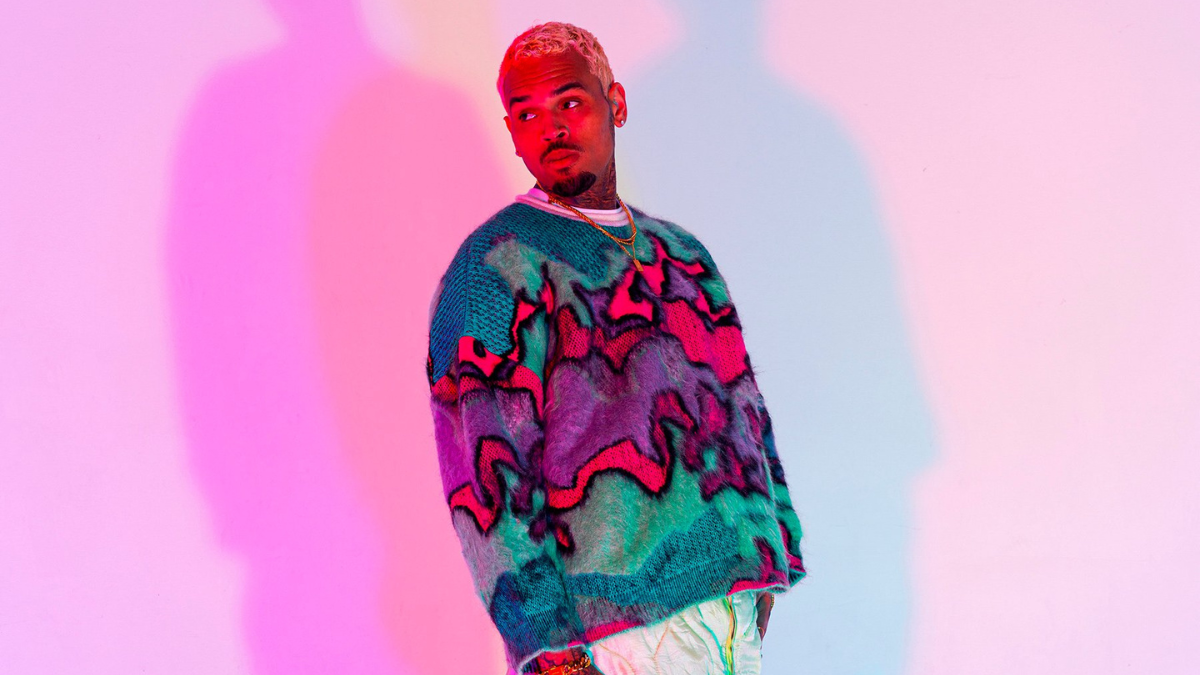

His keen interest in music and dance made him teach himself both the arts and he declares that Micheal Jackson was his role model. He also participated in the local church choir and local talent shows. His perfection in mimicry of an Usher performance made his mother realize his potential and she started looking for a record deal opportunity.


Chris Brown’s Voice Type & Vocal Range
Chris Brown has a light Lyric tenor vocal style. His vocal potential was first discovered by his mom when he was still a kid. Brown reveals to People magazine that he was 11 and watching Ushers performance ‘My Way’, and I began endeavoring to impersonate it. My mother resembled, ‘You can sing?’ And I resembled, ‘Well, no doubt, Mama.” in this way, and began to sing.
Voice Type: Light-Lyric Tenor
Range: E2-E5-G#5


Chris Brown’s voice sits high up. He has relative easiness in the fifth octave (Yeah 3x, This Christmas, Crawl). The strain really makes it difficult for him to sing there, yet he does not have much of a problem. He likewise sings to be a baritone in the E4-G4 range effortlessly.
Not so sure where this originates from, yet I have seen it many times previously. In fact, He is brighter and lighter than the spinto. Due to the fact that the spinto will have a more substantial, warmer and substantial voice. Chris’ voice is awfully splendid and light to be a spinto.
He has a light and thin voice. His voice is additionally surprisingly energetic. Thus he should be a light-verse tenor.
Achievements
At the tender age of sixteen, Chris Brown made his debut with an album titled “Chris Brown” featuring the runaway hit single “Run It”. This song topped the Billboard Hot 100 in 2005 making him the first male artist whose debut song topped the chart after Montell Jordan had achieved the same in 1995. The RIAA (Recording Industry Association of America) awarded the album a double-platinum certification and it sold more than 2 million copies in the US.
Riding on this success Chris Brown, American recording artist released his second studio album in 2007 November titled “Exclusive”. This album had two hit singles “Kiss-Kiss” featuring T-Pain and was number one and “With You” which became number two in the Billboard Hot 100 and was awarded a Platinum certification by RIAA. “The Forever edition” which is a deluxe version of his album with the single “Forever” was released in 2008 in May and this also peaked at number two position in Billboard Hot 100. “Graffiti” his third album was brought out in 2009 December and its official single “I Can Transform Ya” came up to number 20 in the Billboard Hot 100 becoming Chris Brown’s eighth hit on the charts.
Brown has other hits under his belt such as “No Air” with Jordin Sparks, “Shawty Get Loose” with Lil Mama and T-Pain, “Shortie Like Mine” with rapper Bow Wow all of which reached within number ten in the Billboard Hot 100. His dancing capabilities gave him an extra edge over other singers and he was compared to Micheal Jackson and Usher. On the negative side, Brown was given five years probationary sentence and 6 months community service for assaulting singer Rihanna. In 2010 May Chris Brown American recording artist brought out “Fan of Fan” a mixtape with Tyga and “Deuces” from this tape was released in 2010 June reaching the number one position in the U.S.
Musical Style & Influences
Chris Brown has referred to various artists as his motivation, overwhelmingly Michael Jackson. Chris Brown underlines that “Michael Jackson is the motivation behind why he involved himself in the music industry at the beginning of his music career. In “Fine China,” he represents Jackson’s impact both musically and outwardly as Britini Danielle of Ebony magazine mentioned that the melody was “reminiscent of Michael Jackson’s Off the Wall”.
And He also did mention that Usher is another role model in the music industry who seems to be a more contemporary figure for Brown. He discloses to Vibe magazine about Usher that he was the person who the youths gazed up to, in the singing and dancing world, admired him, and keeps up “If it was not for Usher, at that point Chris Brown couldn’t exist.”
Some critics suggested that Chris Brown’s first experience with R&B, perceiving his contemporary adaptions and flexibility in R&B music. As customary R&B prospered around him, the youthful singer started the development of the genre”. His first single “Run It!” as a “prelude to what Brown would keep on doing for the following decade: determinedly upset develops of blues and rhythm.
Business
TOURING AND THE SINGER
Touring artists experience a wide range of issues including physical and vocal fatigue, mental boredom, poor health…
Published
1 year agoon
May 10, 2023By
Contributor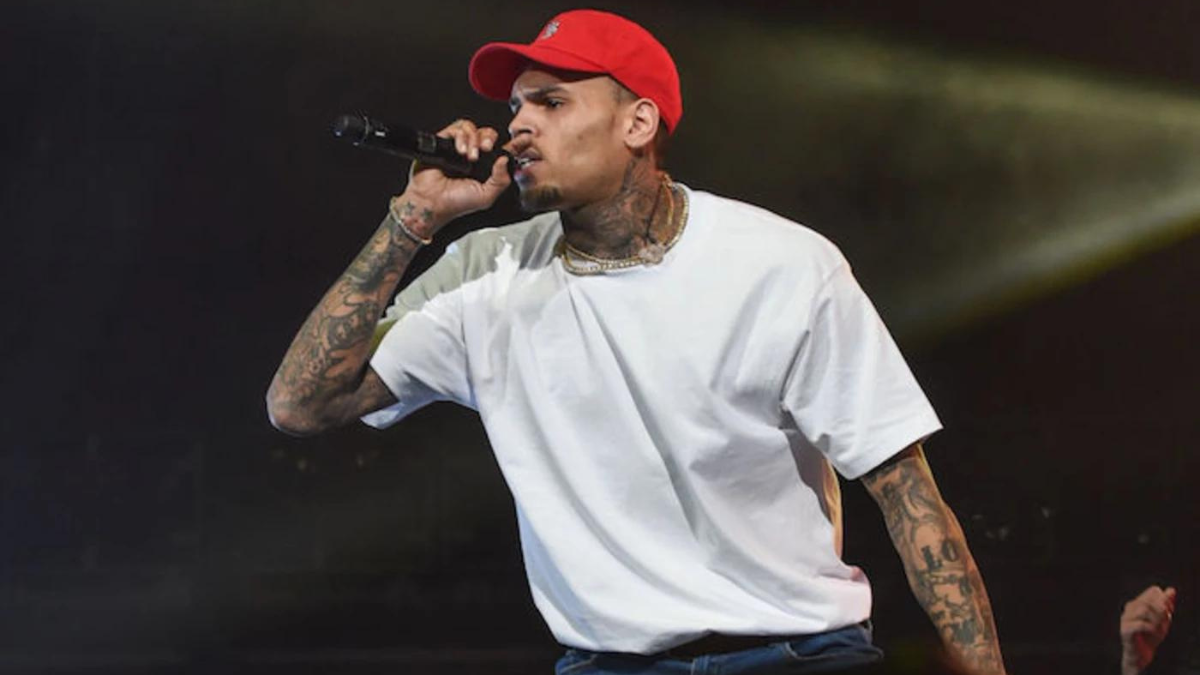

1. How important are vocal warm-ups and why?
Warm-ups are almost more important than vocal technique practice. It is vital to ensure we are getting the vocal ligaments and the intrinsic vocal muscles ready to do the job required during singing. When we talk we only use a limited range of pitches (around a major third or so) but when we sing we may use over two octaves. By warming up we are getting the different layers of the vocal folds ready to work at the higher frequencies required for singing. It is also important to get the larynx and the articulatory muscles ready to deal with singing lyrics. If we don’t get the voice ready and warmed up then we are running the risk of inducing vocal fatigue and ultimately misuse which could lead to vocal pathologies such as vocal fold oedema (swelling), nodules or polyps.
2. How important is vocal technique and why?
The reality is that there are many contemporary commercial singers with a successful career who do not have vocal technique to back their art or the vocal workload experienced as a touring singing/artist. It may be possible to get away with poor vocal technique in the short term or the studio setting, where it is possible to record as many tracks as necessary to get a good take. But when one is performing, live and touring, poor technique will eventually have a negative compound effect on the vocal folds, which increases the risk of injury. Having a well structured technical regime not only helps the singer to build range, stamina, strength and vocal control but will also help to readdress any imbalances acquired during the performance. Understanding how the voice works technically will help the singer to make the right choices when it comes to repertoire, vocal style, use of range or singing with a tired or sick voice.
When it comes to the creative side technique will ensure that the artist can realise their creative vision, to sing unhampered by limitations of vocal range, the ability to transition easily between registers, breath management, vocal tone, the ability to sustain long notes, vocal qualities and dynamic control.
3. What physical and mental effects can touring have on an artist? How can this contribute to vocal health problems?
Touring artists experience a wide range of issues including physical and vocal fatigue, mental boredom, poor health, disruption to dietary and daily routines, feelings of isolation from friends and family. Whether they are travelling in a band van, tour bus or flying, most artists suffer from disruption in sleep, daily routine, dietary habits etc. When there is a group of people travelling together in close proximity there is also an increase in risk for communicable illnesses such as colds and cases of flu. Flying may cause dehydration and vocal fold swelling due to an increase in atmospheric pressure. This may cause the voice to be husky or hoarse and limit the singer’s ability to access their upper/lower ranges. Environmental conditions such as air-conditioning, heating, humidity, dryness, altitude and cold temperatures will also impact the singer’s physical, mental and vocal health. In addition, if they are crossing time-lines then jet-lag will contribute by reducing physical and mental function. Being tired, stressed, rundown or dehydrated will impact the vocal fold’s ability to function optimally resulting in loss of range, tonal quality and sustainability.
4. Are vocal health problems more common today? Or do you think artists are more open about their health as it is mediated in the press more?
I think it is a combination of instant media and the kind of pressure, vocally and physically the current day artist is under. Pressure to ensure they sell their music and make money for their label etc. This means that they tour heavily and they are obliged to do a heavy load of publicity and networking, in turn, their voice does not get as much rest as it needs to do its job on stage night after night. Depending on the label/management tours may be more intensive with more performances packed in over a shorter period. Some labels have a policy of not allowing their artist to do more than three shows in a row, but not all artists are well looked after in this way. In the past, it would have been viewed more negatively by the public/fans if they knew that the artist was having vocal problems. Today people seem to think it’s par for the course as there is so much in the media about singers who have to cancel tours and gigs due to voice problems.
5. If there is no option to cancel a show a steroid injection may be required. What are the effects of this? Is it only temporary? Can it do more harm than good?
Steroid injections can be very effective in the short-term to help a performer get through a show. When a major artist cancels it means the loss of millions of dollars. So the management tries hard to prevent this from occurring. One-off steroid injections do not commonly have long-term medical side-effects. It only becomes problematic when this becomes a regular dose. Having an injection does carry a risk of injury if it is not done safely and accurately. High or prolonged doses of steroids (injections or tablets) will impact the body systemically e.g. excess fat distributed weirdly, prone to infections, and a risk of injury to the vocal folds such as nodules, haemorrhage or laryngitis.
Given appropriately and safely a steroid injection can save the day.
6. Are there any other ‘quick fix’ medicines that are used on tour? What are the effects?
I can’t think of any. I imagine any kind of analgesia that helps with pain might be used in some cases. Depending on the type of the analgesia will depend on the side effects. Obviously, narcotics run the risk of dependency and poor motor control. Some of the more common over the counter types such as paracetamol and codeine can cause constipation if taken regularly. Salicylates (e.g. aspirin) act as blood thinners and are not recommended for singers as a possible side-effect could be vocal fold haemorrhage.
7. Is it necessary to have surgery or will the body fight back if it’s allowed complete vocal rest?
Surgery depends on the type and severity of the vocal pathology as well as the time constraints of the artist. If there is pressure for the artist to get out and work e.g major tour, imminent album launch or significant performance then the powers that be are more likely to opt for surgery. If the artist/singer is not under such pressure or can’t afford surgery then alternative options may be considered at first.
- These days vocal nodules are generally treated with therapy and vocal technique if they are in the pre-nodular or soft stages. Some surgeons will treat hard nodules with surgery, though I have seen cases where nodules have not been surgically removed and the singer had successful rehabilitation through voice therapy and correction of poor vocal technique.
- Vocal polyps and severe haemorrhages, cysts and granulomas generally require surgical intervention. The singer is then on vocal rest for 2-3 weeks.
- Vocal oedema requires rest and addressing the cause.
- Infections and laryngitis do not require surgery.
It very much depends also on the doctor i.e. their training and experience. An ENT surgeon or ENT/laryngologist who works with singers a lot will tend to only do surgery if necessary, and there is no response to voice therapy and/or addressing the cause.
Vocal rest will help in many instances but the problem may re-occur if the cause is not addressed. Many common voice issues in singers can be dealt with through rest, rehydration, good vocal technique and a balanced healthy diet.
8. Do you think audiences have higher expectations when going to watch an artist perform? ie: Pitch, physically performing.
With the use of auto-tuning in the studio, audiences have come to expect a singer to sing perfectly. This is compounded by the impact of music videos and the use of lip-syncing, as well as the use of auto-tuning in the live setting. Having said that the general listening audience is not always focusing on things such as pitch or even lyrics, for them, it’s the experience of the live performance.
9. What is your advice for a singer going on tour?
Where possible sleep – cat naps are as useful to the body as whole night sleeps, ensure you are getting 1.5 to 2 L of water a day, take dietary supplements, avoid respiratory infections like the plague. Take your own pillow on tour, healthy snacks, eyeshades, earplugs, nebulizer with normal saline, throat massager and most importantly straws so you can do regular straw therapy.
Don’t expect your voice to be able to work optimally if you don’t look after it, excessive talking, alcohol, smoking, drugs, poor diet and late nights will prevent your voice from working to its best.
At the end of the day, this is your job and what your audience is paying for. You are the equivalent of a vocal athlete. Follow these tips:
- maintain a regular and personalised vocal exercise regime
- do warm-ups and downs before/after a performance
- if possible change repertoire, vocal range and performance energy to accommodate the days when you or your voice are fatigued
- check in regularly with a vocal coach who understands how to keep you vocally fit and healthy
- do physical exercise to ensure your body is supporting your voice.
- Keep well hydrated
- Maintain a healthy and balanced diet with supplements to boost your immune system
- sleep whenever possible
- avoid sick people!


Why Are So Many Rap Concerts Getting Canceled?



CHRIS BROWN: The Top Recording Artist ALIVE [Vocal Range]


TOURING AND THE SINGER
Trending
-



 Business2 years ago
Business2 years agoThe Day Jordin Sparks Stopped Singing
-


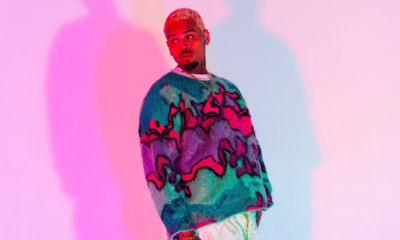


 Business1 year ago
Business1 year agoCHRIS BROWN: The Top Recording Artist ALIVE [Vocal Range]
-

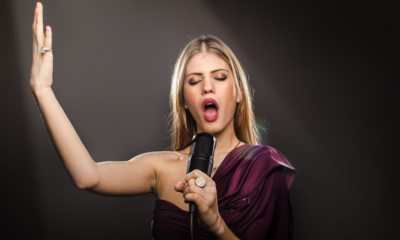

 Business2 years ago
Business2 years agoTVM-TV LIVE
-

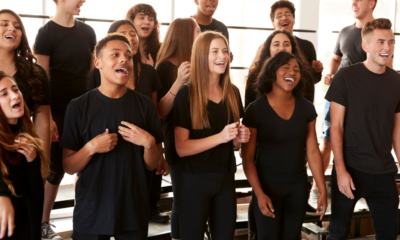

 Business2 years ago
Business2 years agoBenefits of Joining a Choir
-

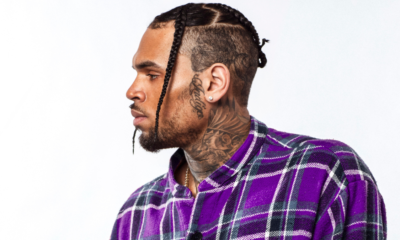

 Business2 years ago
Business2 years agoChris Brown’s 12th Studio Album “Breezy”
-

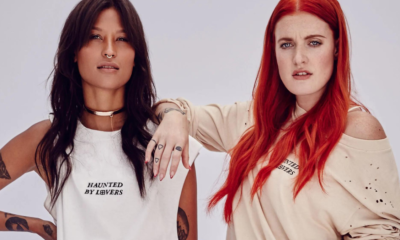

 Tech7 years ago
Tech7 years agoICONA POP
-



 Business2 years ago
Business2 years agoFood for Singers: The Diva Diet
-

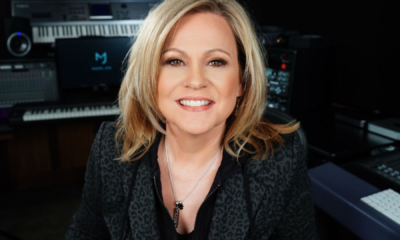

 Business2 years ago
Business2 years agoINTERVIEW WITH MAMA JAN

